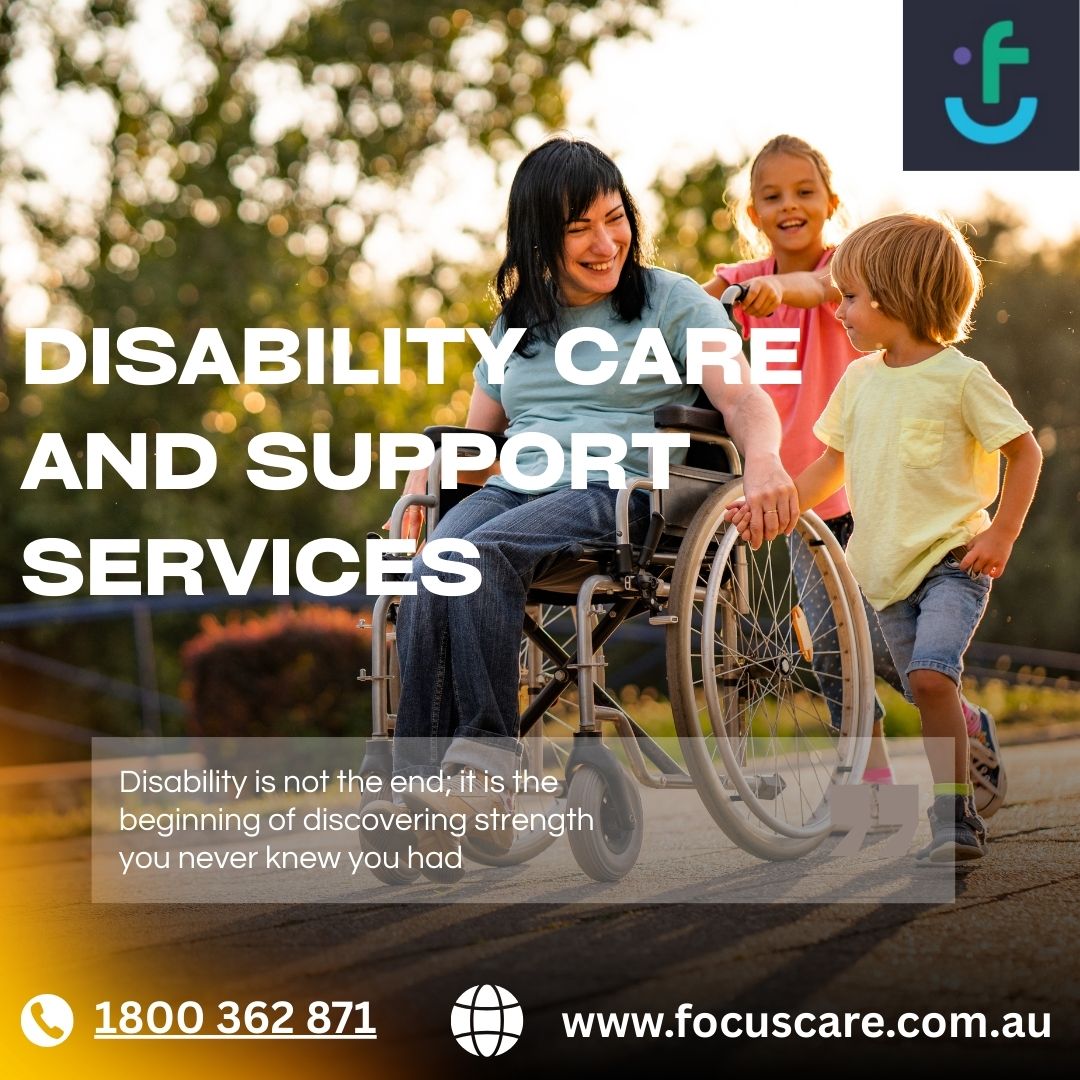
When it comes to support services in Australia, the terms aged care and disability care are often used—but they aren’t the same thing. While both focus on helping individuals live with dignity and independence, there are key differences in who they support, how services are delivered, and how they’re funded.
In this blog, we break down the main differences between aged care and disability care—and how organisations like Focus Care deliver both with empathy, respect, and personalised support.
Who Is It For?
Aged Care
Aged care is primarily designed for older Australians, usually those aged 65 and over (or 50 and over for Aboriginal and Torres Strait Islander peoples), who need support due to age-related changes such as reduced mobility, cognitive decline, or chronic health conditions.
Disability Care
Disability care supports people of any age living with a permanent or significant disability—this includes physical, intellectual, sensory, neurological, and psychosocial disabilities. Support can begin in childhood or early adulthood and continue across the lifespan.
What Services Are Provided?
There is some overlap in the kinds of services provided in both types of care, but the focus and goals often differ.
Aged Care Services often include:
-
Personal care (bathing, dressing, grooming)
-
Domestic assistance (cleaning, laundry, meal prep)
-
Nursing and health care
-
Social support and transport
-
Mobility aids and home modifications
Disability Care Services can include:
-
Daily living support
-
Skill-building and independence training
-
Behavioural and psychological support
-
Employment and education assistance
-
Therapies (occupational, speech, physio)
-
Supported accommodation or independent living
How Are Services Funded?
Aged Care
Aged care is funded and regulated by the Australian Government under programs like:
-
Home Care Packages (HCP)
-
Commonwealth Home Support Programme (CHSP)
-
Residential Aged Care
Clients may pay a co-contribution based on their income and assets.
Disability Care
Disability care is primarily funded through the National Disability Insurance Scheme (NDIS). The NDIS provides individualised funding packages to eligible participants to help them achieve their personal goals and increase their independence.
How Are Services Delivered?
Both types of care can be delivered:
-
In the home
-
In the community
-
In specialised accommodation settings
However, disability care is often more goal-oriented and capacity-building, focused on long-term personal development, education, or community participation.
Aged care, while also person-centred, generally focuses more on managing declining health and maintaining quality of life in later years.
Can Someone Receive Both?
Yes, it’s possible to receive both aged care and disability supports, but not usually from both systems at the same time. For example:
-
Once a person turns 65, they typically transition from the NDIS to aged care services.
-
However, there are exceptions and transitional supports for people with high needs.
It’s important to get the right advice to navigate these systems—this is where providers like Focus Care can help guide the process.
How Focus Care Supports Both Needs
At Focus Care, we specialise in both aged care and disability support, offering:
-
Personalised care plans
-
Respectful, culturally aware service
-
A strong focus on empowerment and choice
-
Highly trained, compassionate support workers
Whether it’s supporting someone in their golden years or empowering a younger person living with disability, we’re here to help people live full, connected, and meaningful lives.
Final Thoughts
While aged care and disability care share similar values—like dignity, independence, and inclusion—they serve different populations with unique needs and goals. Understanding the difference is key to accessing the right supports at the right time.
If you or a loved one are unsure where to start, Focus Care is here to help. Our team can guide you through your options and develop a support plan that fits your life, your goals, and your future.








